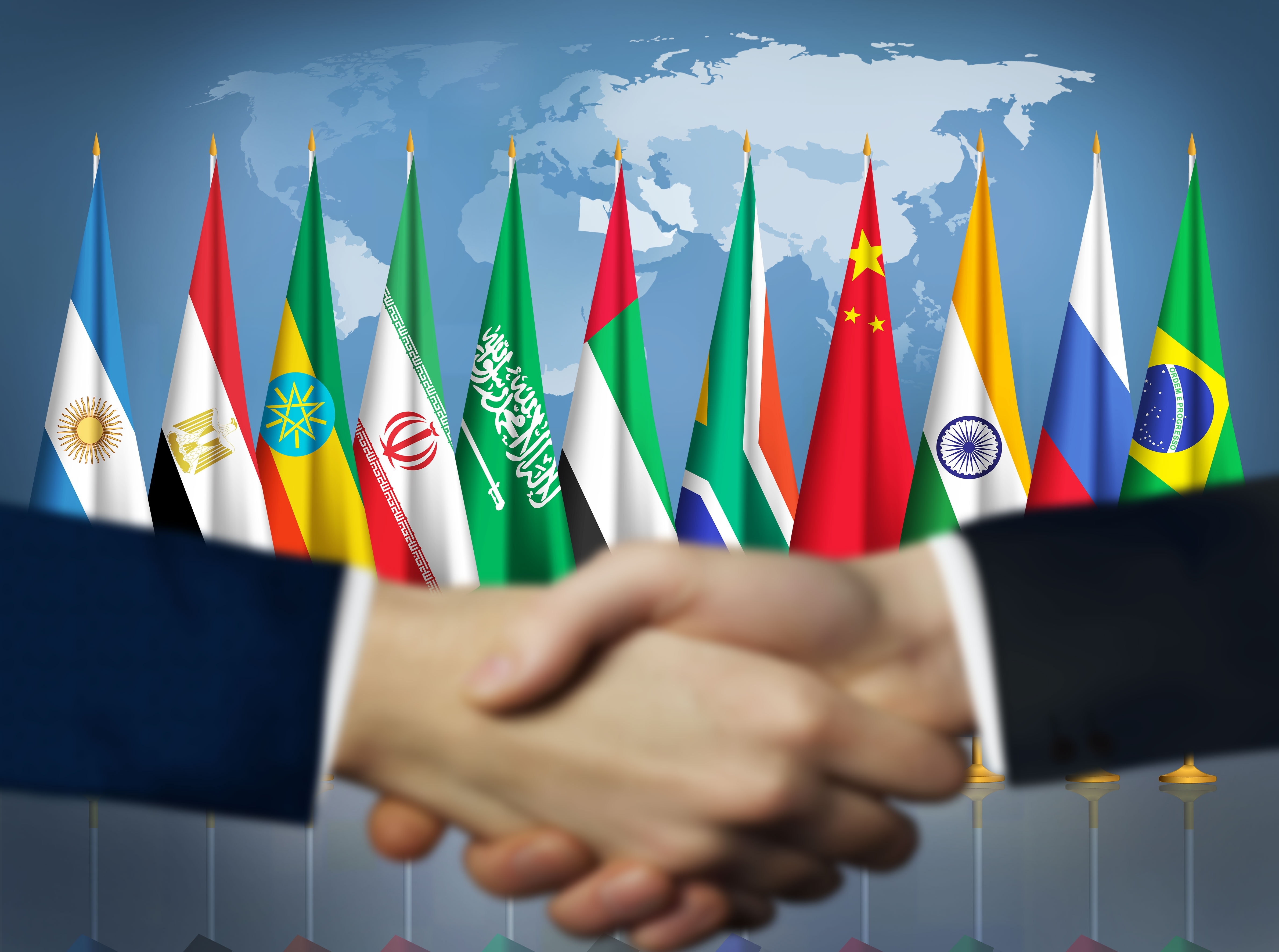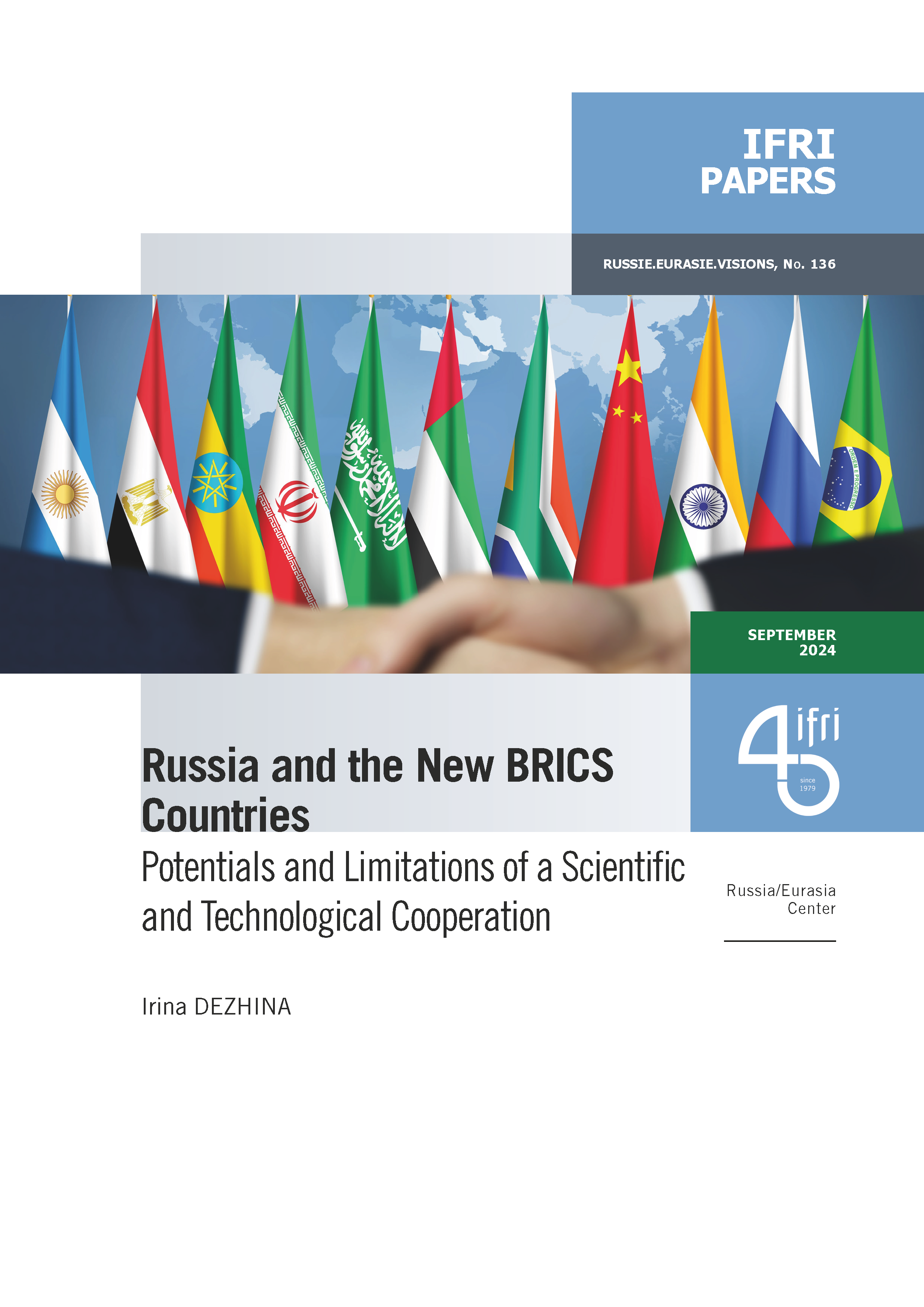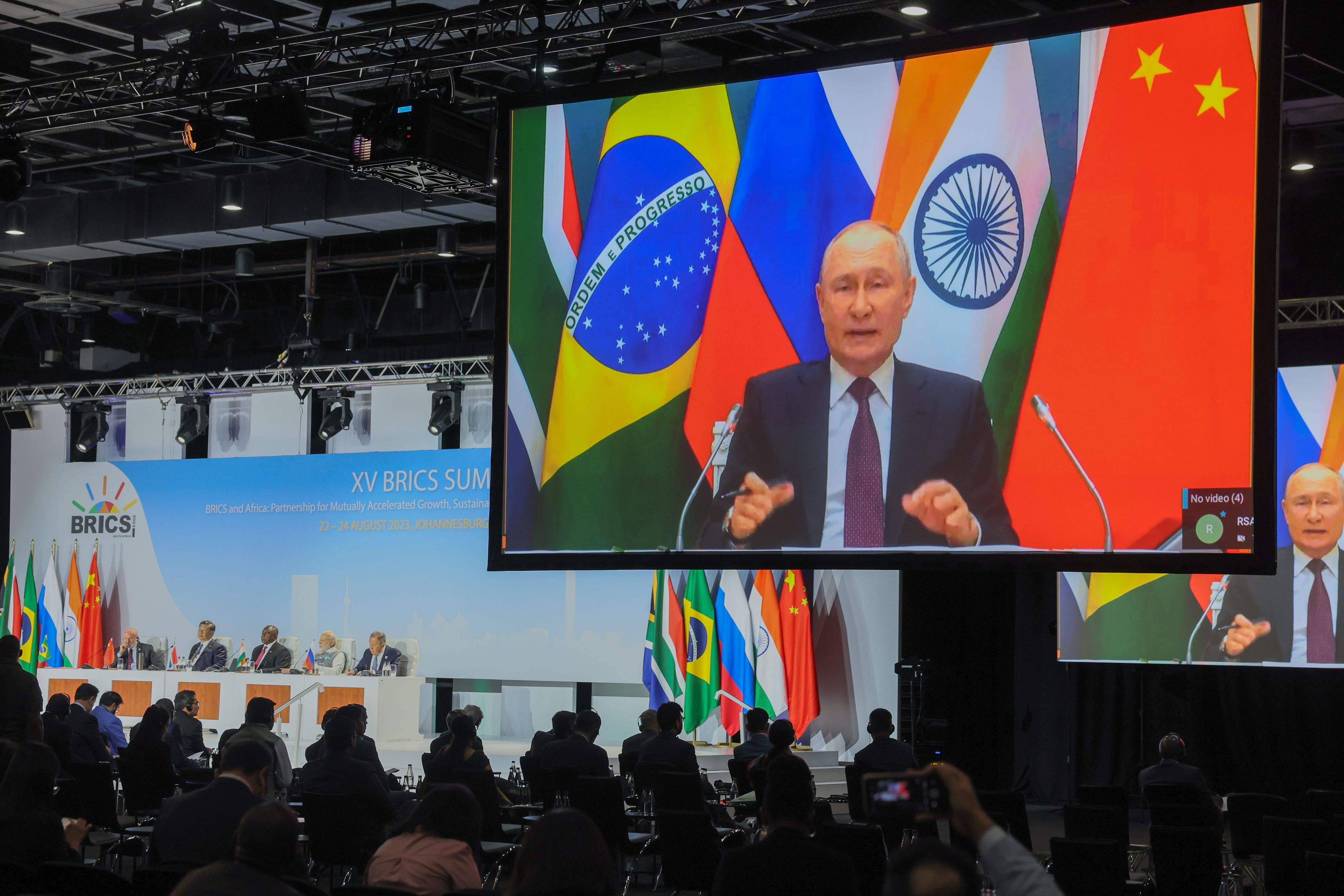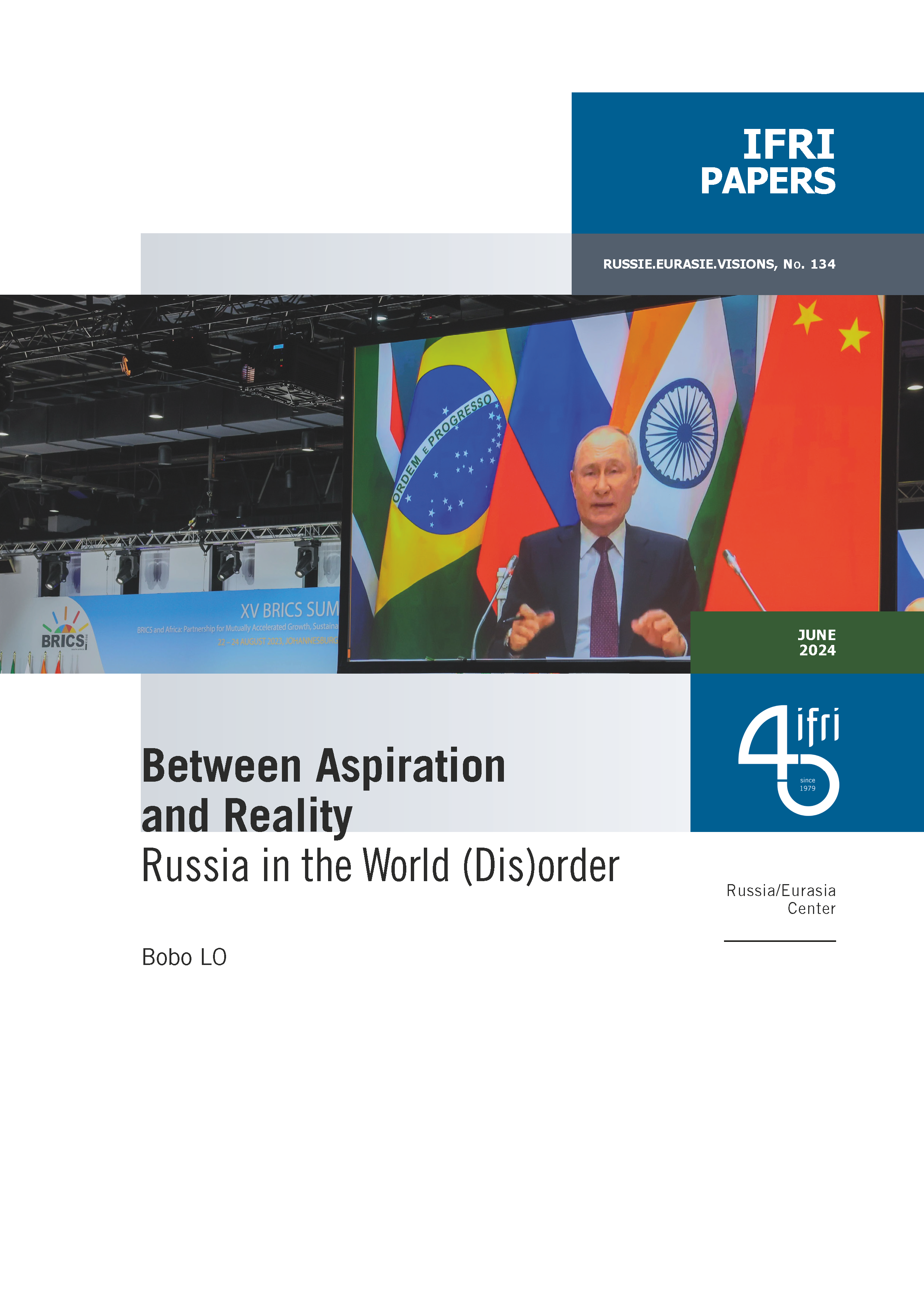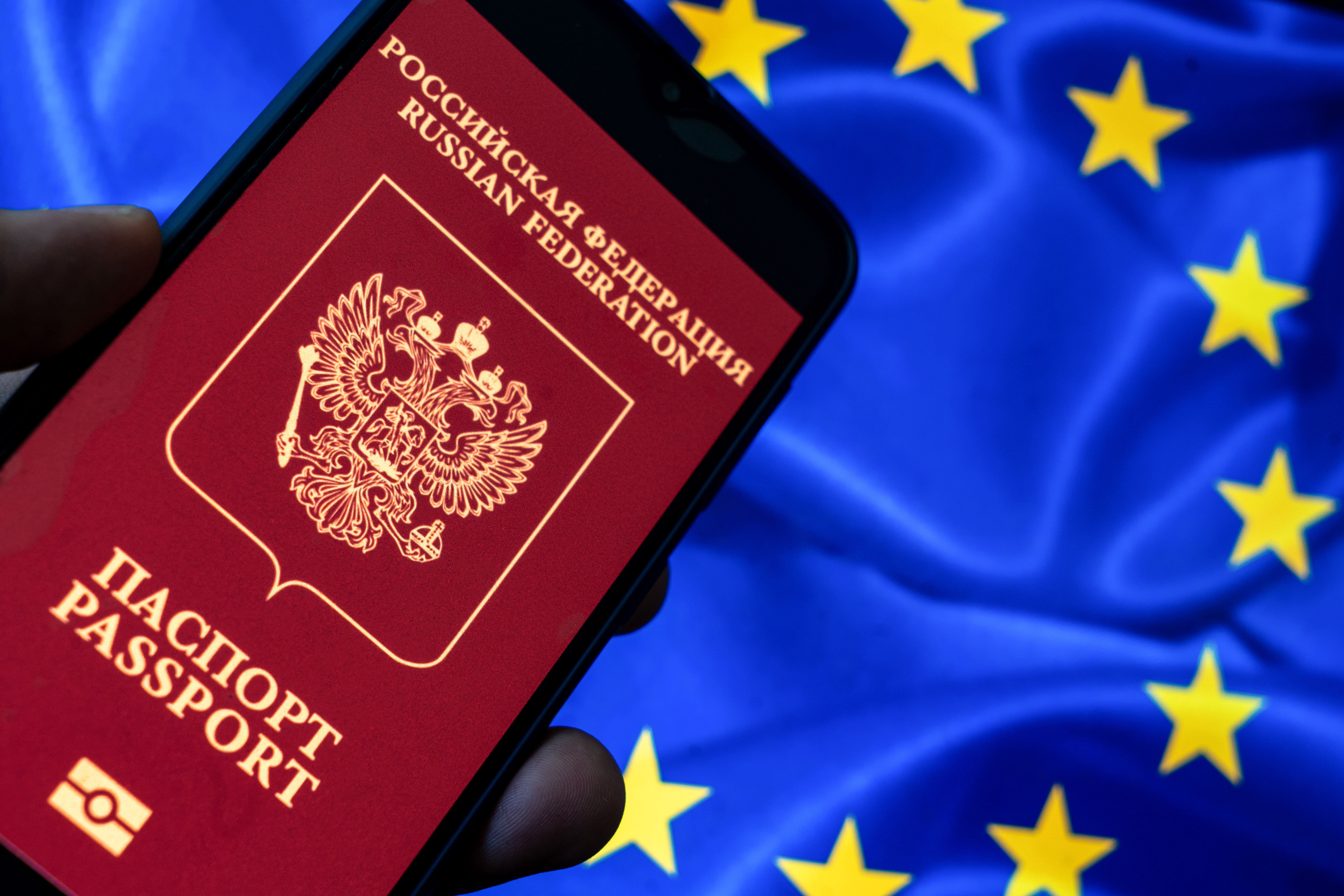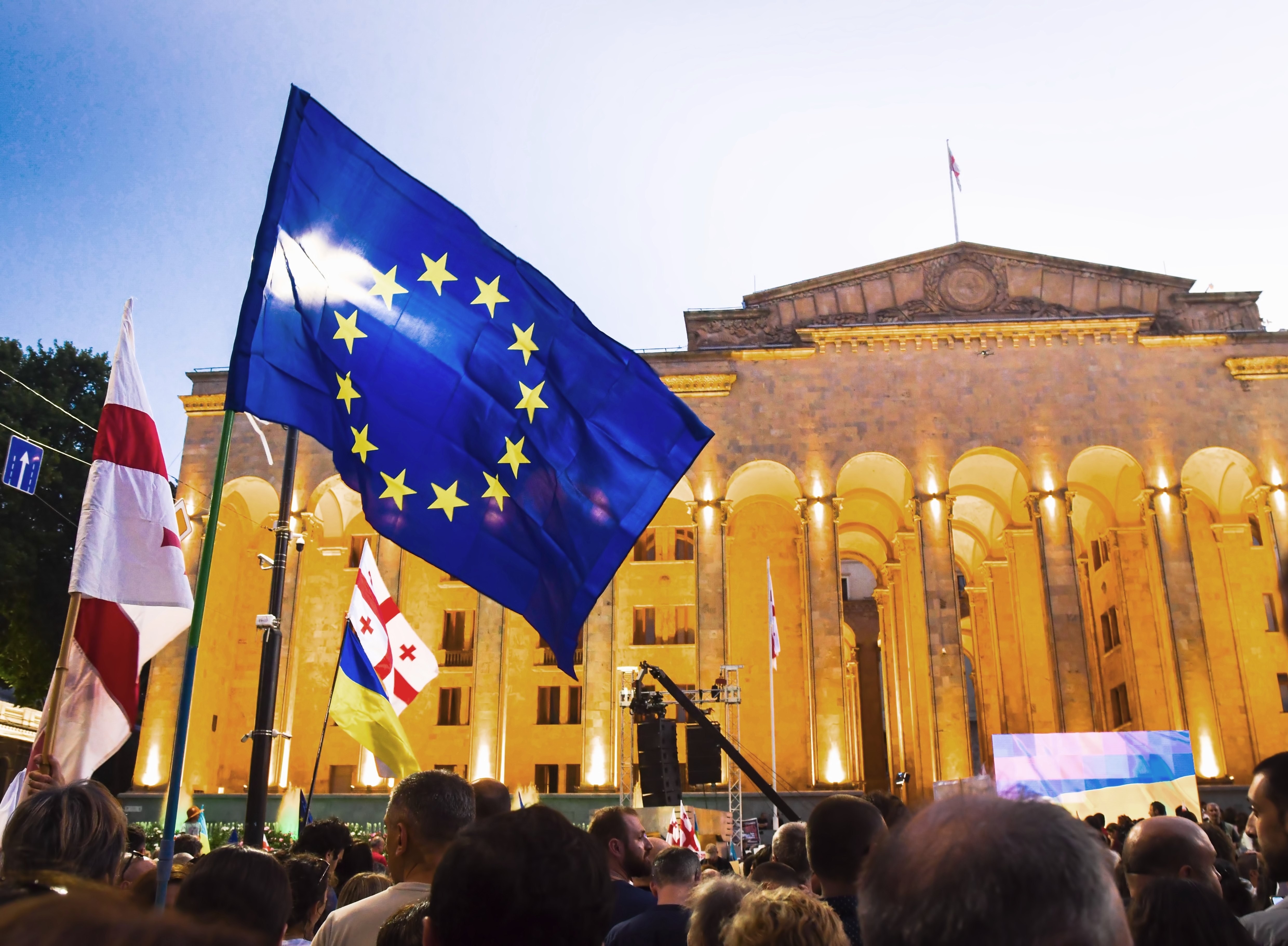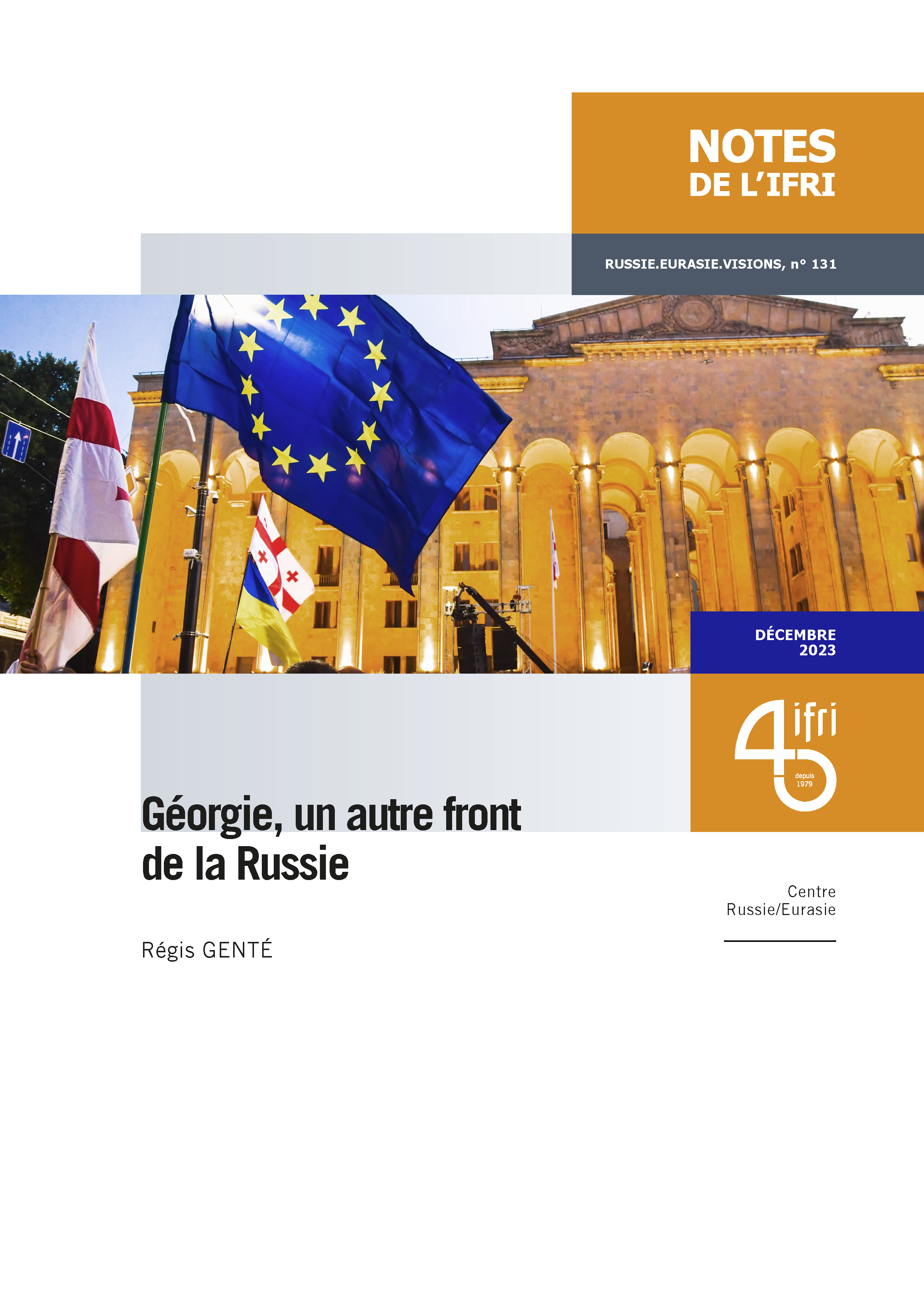Russia/Eurasia Center
Founded in 2005 within Ifri, the Russia/Eurasia Center conducts research and organizes debates on Russia, Eastern Europe, Central Asia, and the South Caucasus. Its goal is to understand and anticipate the evolution of this complex and rapidly changing geographical area in order to enrich public discourse in France and Europe and to assist in strategic, political, and economic decision-making.
Read more


Director of the Russia/Eurasia Center, Ifri
Publications
See all our interventions
Flagship Publications
Titre Bloc Axe
Research Areas
See all our interventions
Titre Axe de recherche
Russian Economy and Society
The Economy and Society research axis within Ifri's Russia/Eurasia Center is interested in economic questions including the impact of Western sanctions on the Russian economy as well as the evolution of society (demography , middle classes, youth, education, opposition, militarization, protest movements, etc.).
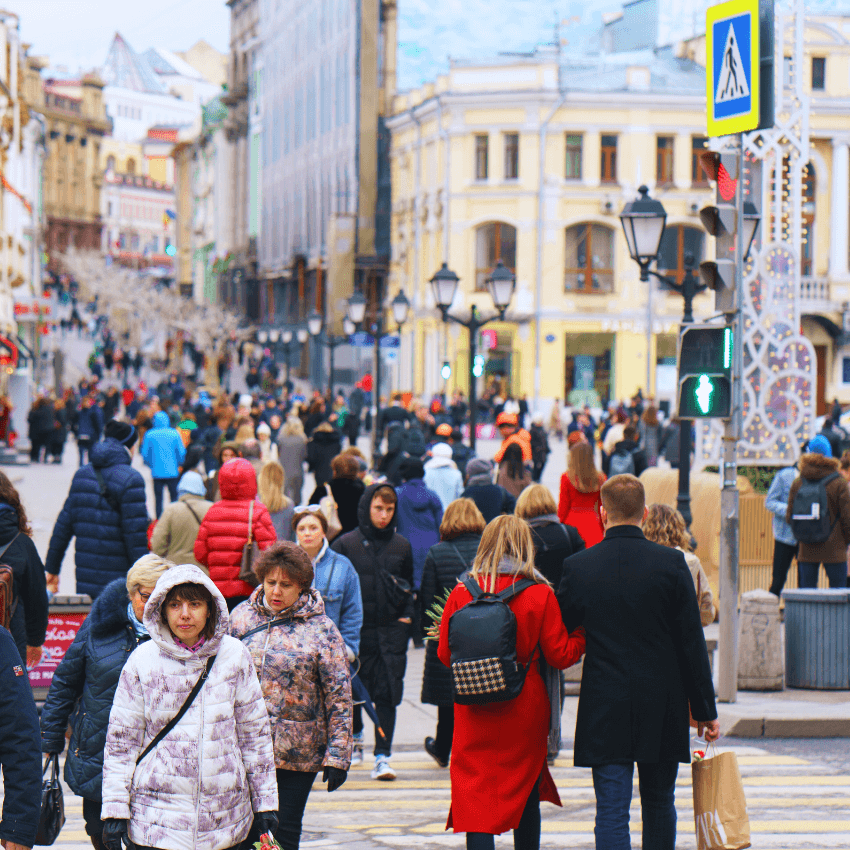
Titre Axe de recherche
Russian Domestic Politics
The Domestic Politics research axis within Ifri's Russia/Eurasia Center analyzes Russian domestic politics, the evolution of the political system and its elites, as well as their relations with society.

Titre Axe de recherche
Russian Foreign Policy and Defense
The Foreign Policy and Defense research axis within Ifri's Russia/Eurasia Center examines Russia's relations with the former Soviet republics and the rest of the world, particularly the West and China. A specific importance is given to defense and security issues.
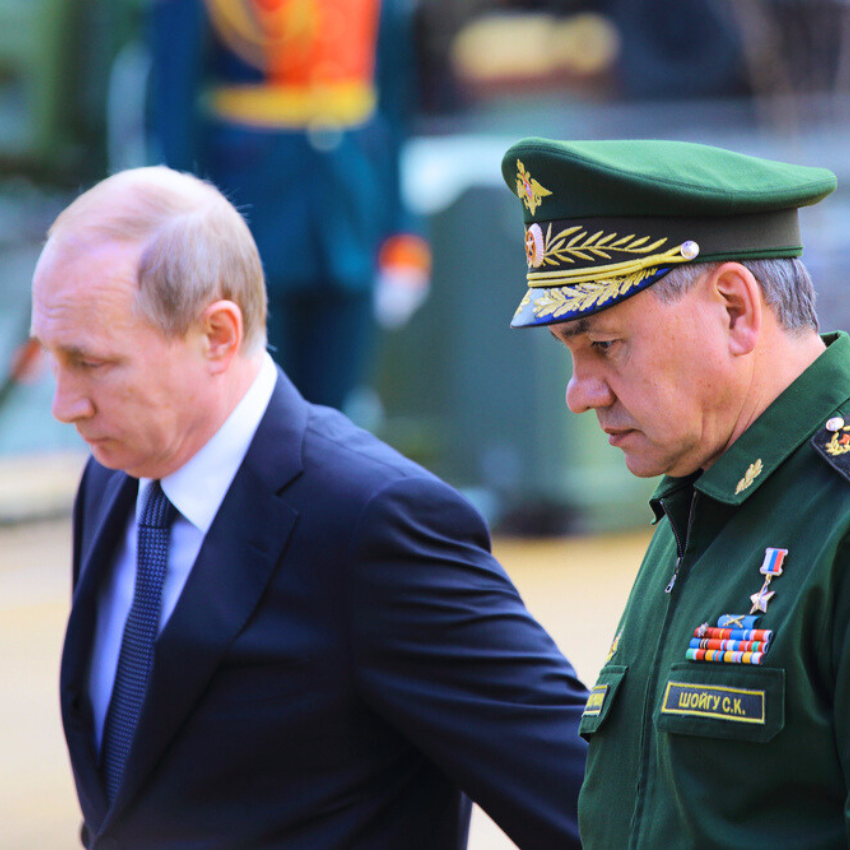
Titre Axe de recherche
Eurasia
The Eurasia research axis within Ifri's Russia/Eurasia Center analyzes internal developments in Ukraine, Moldova, Belarus, Georgia, Armenia, Azerbaijan, Kazakhstan, Uzbekistan, Turkmenistan, Tajikistan and Kyrgyzstan, as well as their relations with the Russian Federation and other regional and global powers.
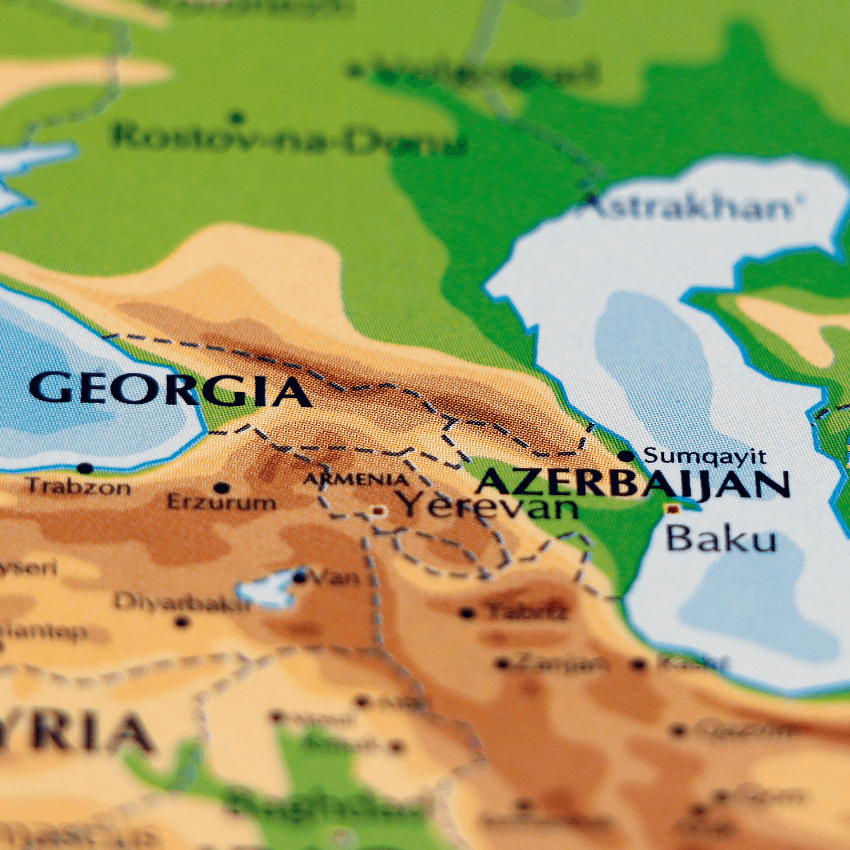
Publications
Russia and the "Gas-OPEC". Real or Perceived Threat?
The threat of a gas-OPEC, waved around by certain big producers, has given rise to much fear in consuming countries. The behavior of Russia, a key exporter, has made it seem as though gas sales could be used as a political weapon. In truth, the creation of an entente between exporting countries is not technically feasible. What is more, Russia remains reticent to join any association in order not to limit its room for maneuver. Seeking to dominate the world market, it has singed a certain number of agreements with other big producers. Nevertheless, the capitalistic constraints of the gas market jeopardize the chances of long-term coordination, which is incompatible with short-term political interests.
Paris and the EU-Russia Dialogue: A New Impulse with Nicolas Sarkozy?
The visit by French President Nicolas Sarkozy to Russia (October 2007) and the future French Presidency of the European Union (in the second half of 2008) call for a reflection on Franco-Russian relations and their structure within the broader framework of Russia-Europe relations. In the coming years, the nature of the EU-Russian dialogue will become a crucial issue, while Franco-Russian bilateral relations are now relegated to second place. This discrepancy is forcing French policy-makers to resort to a pragmatic and realistic approach in order to better combine the two agendas. This article examines the immediate issues at stake in the EU-Russian dialogue, the EU's attitude toward Russia and, conversely, Russia's attitude toward the EU. For each point, this article will examine whether the French stance has been sustained or if it has evolved.
Rosoboronexport, Spearhead of the Russian Arms Industry
Rosoboronexport, a federal state unitary enterprise, is at the heart of Russian political power: it is the key pivot of the arms exports policy and of the ongoing consolidations of the Russian military-industrial complex (MIC). On behalf of its Director Sergey Chemezov, a close relation of President Vladimir Putin, Rosoboronexport has become the driving force for the renewal of Russia's military-technical policy, as it benefits from a quasi monopoly on arms exports. Through Rosoboronexport, the Russian state is seeking to modernize the Russian MIC - token of the country's power and influence on the international scene. In order to ensure the long-term success of its takeover operations of Russian industrial companies, Rosoboronoexport now needs to complete its transformation into an industrial holding company and strengthen its privileged position beyond the next Russian presidential elections to be held in 2008.
Russia and the Deadlock over Kosovo
Russia and the West disagree over the future of Kosovo. While the European Union (EU) and United States (US) are keen to grant Kosovo de jure sovereignty under the Ahtisaari plan, Russia insists that no decision can be taken without Serbia's consent. Moreover, Russia insists that the Kosovo issue will set a precedent with long-term consequences for Eurasia and the world. These differences have exposed old divisions between Russia and the West, particularly acute during NATO's bombing of Yugoslavia in 1999. However, today it is more difficult for the West to reach a compromise with an increasingly assertive and self-confident Russia which does not hesitate to oppose Western policies. This article looks at historic legacies, myths, concerns about precedents and other interests which guide Russia's policy over Kosovo's status.
Russia-EU beyond 2007. Russian Domestic Debates
One of the main problems in relations between Russia and the European Union (EU) is the absence of strategic goals. Russia, having played a critical role in ending the Cold War, has neither found its place in the strategy of EU expansion nor in that of NATO. In 2007, the active Partnership and Cooperation Agreement (PCA) between Russia and the EU - which both sides agree has become outdated and is no longer able to meet today's challenges - is due to expire. The form that any new legal, contractual basis for relations between Russia and the EU may take will have implications not only for stability within Europe, but also for Russia's democratic future.
The Opacity of Russian-Ukrainian Energy Relations
Energy issues lie at the heart of Ukraine's economic, political and strategic challenges. A year after the 'orange revolution', the 'gas war' served to highlight the country's vulnerable position, being 80% dependent on imports of gas and having the world's most energy-hungry economy. The 2005 crisis also highlighted the extreme opacity of the country's bilateral relations with Russia, which are governed as much by the interests surrounding Gazprom's relations as by those of the state. Yanukovich's return to power in the summer of 2006 coincided with a relative appeasement of relations with Moscow and a new division of spheres of influence in the Ukrainian energy sector.
Gazprom as a Predictable Partner. Another Reading of the Russian-Ukrainian and Russian-Belarusian Energy Crises
The recent crises over oil & gas deliveries from Russia to Ukraine and Belarus have triggered alarm and virulent criticism in the West.
Gazprom, the Fastest Way to Energy Suicide
Russia is an unavoidable actor in world energy geopolitics. It is also the biggest energy partner of a European Union (EU) that is becoming ever more dependent on outside sources for its energy needs. However, the future of Russia's largest company-Gazprom-and the development of its future production capacities are at the center of a complex financial and political game dominated by numerous uncertainties, including Gazprom's actual reserves, its ability to invest in exploration and production, and its very capacity to develop production. Indeed, back in state hands, Russian gas and oil companies-Gazprom included-do not appear to be in a position to meet their future production commitments. Gazprom's ability to honor its contracts with gas companies in the EU is in fact already the subject of numerous interrogations.
Russia and the WTO: On the Finishing Stretch
Russia is now in the final negotiation phase regarding its accession to the World Trade Organization (WTO). Discussions have been held over the past fourteen years and have contributed indisputably to the transformation of the Russian economy and the modernization of its legislature. If there are still unanswered questions at the start of 2007, the unbalanced nature of the negotiations runs the risk of Russia having to make further concessions to its partners in order to speed up the agreement's conclusion. In the longer term, the main challenge faced by Russian authorities is to ensure that documents that are already in force are transposed.
Russia and the Council of Europe: Ten Years Wasted?
In 1996, the Russian Federation joined the Council of Europe both in spite of and owing to its democratic failings. Accession was, in fact, seen as a step toward democratic conversion. Ten years an, as the Council is presided by Russia for the first time, an initial appraisal can be made using the following questions as guideline: to what extend has the Council of Europe influenced Russia, and to what extend has Russia - taking into account observed regressions - modified the current nature of the Council?
The Team

Our research fellows: Russia/Eurasia Center
Support independent French research
Ifri, a foundation recognized as being of public utility, relies largely on private donors – companies and individuals – to guarantee its sustainability and intellectual independence. Through their funding, donors help maintain the Institute's position among the world's leading think tanks. By benefiting from an internationally recognized network and expertise, donors refine their understanding of geopolitical risk and its consequences on global politics and the economy. In 2024, Ifri will support more than 70 French and foreign companies and organizations.











